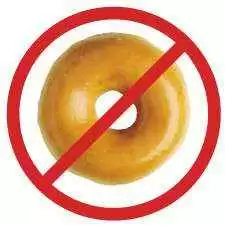Celiac.com 09/11/2009 - When is a beer not a beer? When it's gluten-free. Until now.
Beer perpetually hovers near the top of most celiac lists of things they'd love to have if they could. Until recently, the regulation of labels for beer, wine and spirits fell to a little known government agency called the Alcohol and Tobacco Tax and Trade Bureau.
Celiac.com Sponsor (A12):
Because their regulations relied on the Federal Alcohol Administration Act of 1935, which defined beer as a beverage brewed from malted barley and other grains, gluten-free beers did not meet the strict definition, and could not therefore be labeled as 'gluten-free beer,' as no such standard existed.
That situation has changed, and the Food and Drug Administration is now charged with the regulation of beer labels. Because of this, gluten-free beer can now be labeled 'gluten-free beer' instead of 'sorghum beer' or 'beer made without wheat or barley', or some such silliness.
That's good news for the nation's estimated two million sufferers of celiac disease, and the many, many more who are gluten intolerant. For these folks, consuming any kind of product containing wheat, rye or barley can cause chronic diarrhea, arthritis, bone loss and a raft of other symptoms.
In people with celiac disease, the immune system reacts to gluten, a protein found in wheat, rye and barley, which causes inflammation in their gut and interfers with the absorption of nutrients.
All traditional beers are brewed with malted barley and contain gluten. However, specialty micro brewers began making beer from malted sorghum, an African grain, and sometimes rice. Anheuser-Busch followed later with its own sorghum beer. Beers brewed with sorghum and rice are gluten free, which is great for celiacs, but was not in line with the Federal Alcohol Administration Act of 1935, which defines beer as a beverage brewed from malted barley and other grains.
So even though it looked, smelled and tasted like beer, the amber, foamy and distinctly beer-like beverage did not count as beer under the rules. Which is why last July 7, 2008, the FDA and TTB agreed that FDA would take over regulation.
The FDAs Guidance for Industry covers all non-barley beers. So, in a great development for all of the celiac and gluten-intolerant folks out there, these beers can now officially be labeled gluten-free once they've been tested and confirmed by FDA.
The guidelines give brewers of gluten-free beers until Jan. 1, 2012, to begin adding nutrition labels to their beverages, including a declaration of major food allergens, wheat.
Up until now, people with celiac disease and gluten intolerance could not be sure that their gluten-free beer was actually safe and gluten-free. Now FDA regulations have established a standard.
According to Elaine Monarch, executive director of the Celiac Disease Foundation, accurate labels will provide a measure of assurance for celiacs, and possibly make it easier for European gluten-free beverages to enter the market.
Gluten-free beer is a small, but steadily growing sector of the beer market, with a present market share of under 0.1%, according to Paul Gatza of the Brewers Association in Boulder, Colorado. Still, growth for some brands runs upward of 35% per year. The biggest gluten-free beer players are Anheuser-Busch, which makes Red Bridge, Lakefront Brewery's New Grist, and Bard's Tail.







Recommended Comments